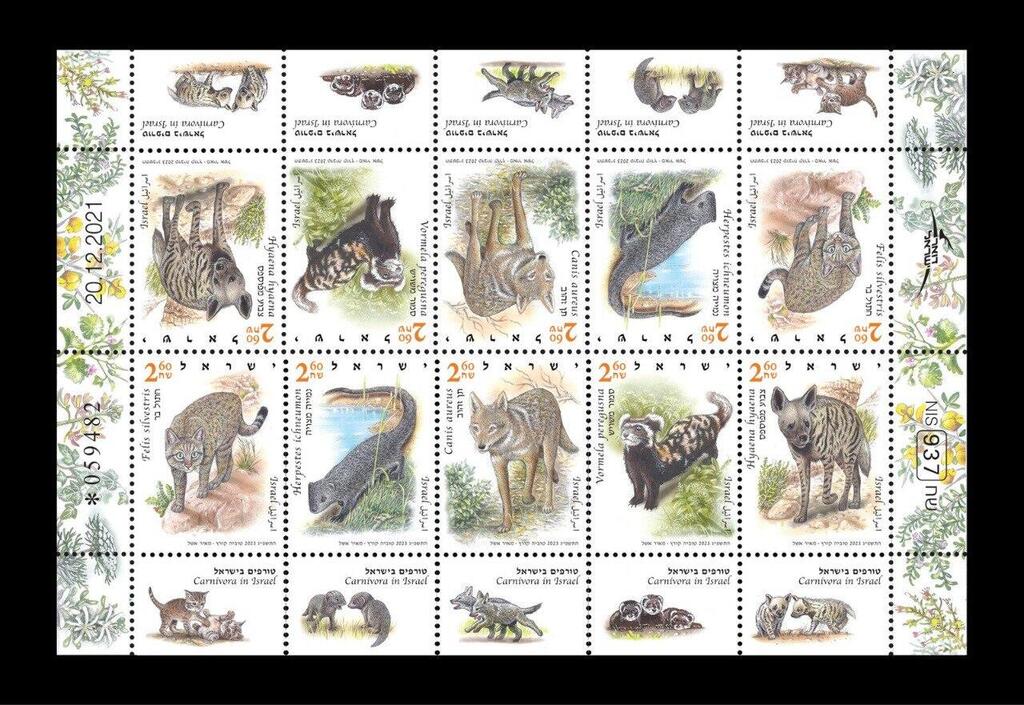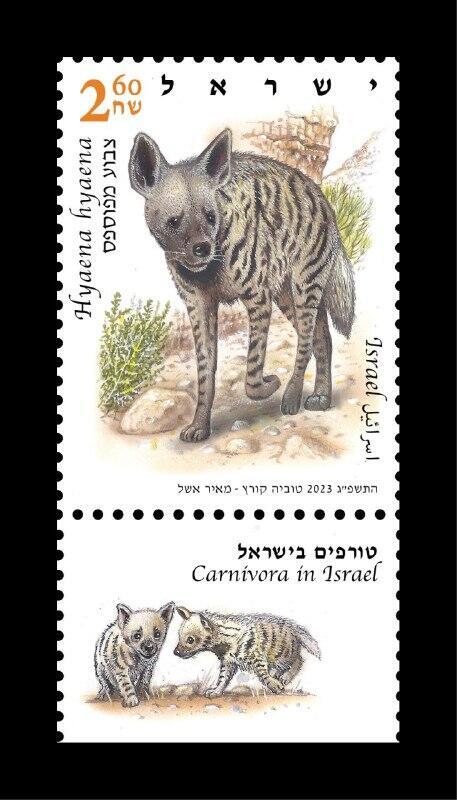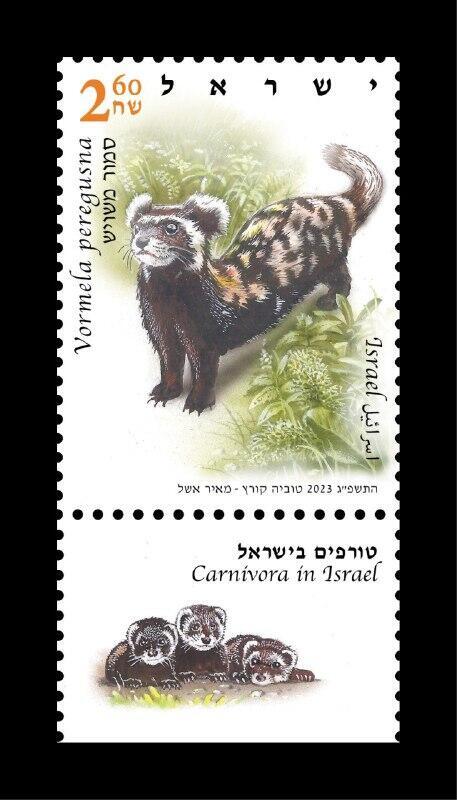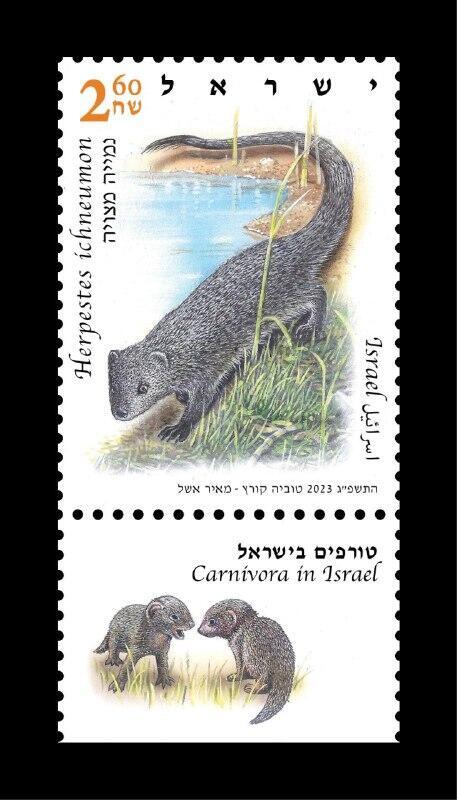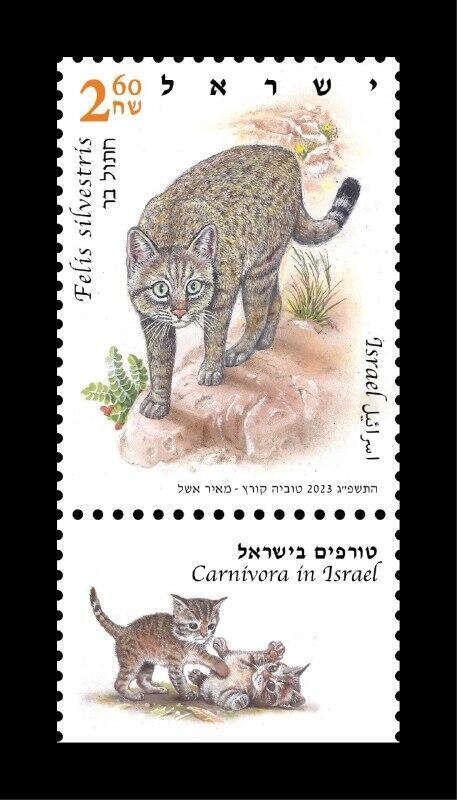Getting your Trinity Audio player ready...
The Holy Land's most prominent carnivorous wildlife are both beautiful and enigmatic, in part because of their nocturnal habits which make them tougher to spot, let alone film.
The Nature and Parks Authority, in conjunction with the Israel Postal Company, decided to celebrate the country's rich and diverse biological tapestry with a new series of postage stamps.
There are five predator species in Israel that call the Mediterranean Sea region their home, and sadly, they're all endangered. Their habitat is ever-shrinking, whether due to agriculture, urban settlement, poaching, landfills and more.
From the largest predator (the striped hyena) to the smallest (the weasel), the stamps feature other wildlife like the golden jackals, caracals and mongooses.
The stamps are the brainchild of Ezra Hadad, a wildlife photographer with a passion for raising awareness of the local wildlife's significance to the ecological balance that is so important to maintain.
The design was made by Tuvya Koretz, a professional illustrator who focuses on nature and wildlife, with dozens of nature-related stamps of his commissioned by the Nature and Parks Authority. His most famous stamp just might be the Eurasian hoopoe, Israel's national bird.
"Israel's carnivorous wildlife is sorely misrepresented and undervalued," says Hadad. "For example, the hyena is perceived as scary and ominous, partly due to superstition. The fact of the matter is hyenas are special, gentle and fascinating, and their fur naturally secretes a very pleasant odor.
"Their ecological significance cannot be overstated. They are nature's sanitary workers, much like the vulture. They eat animal carcasses, preventing decomposition in the open air."
Priced at about 0.75 cents each, the stamps will be available for purchase online through the Israel Postal Company's website.
One of the series' features, the marbled polecat (Vormela peregusna), is a nocturnal predator that feeds on rodents, small mammals and birds. Their flexible spine allows them to maneuver their bodies to penetrate any lair in which their prey resides.
The mongoose is considered one of the most fearless predators in the wild and has been known to openly take on venomous snakes, wearing them down by circling just out of reach until the snake grows exhausted, then delivering the fatal blow. Helping them further is their natural immunity to venom.


